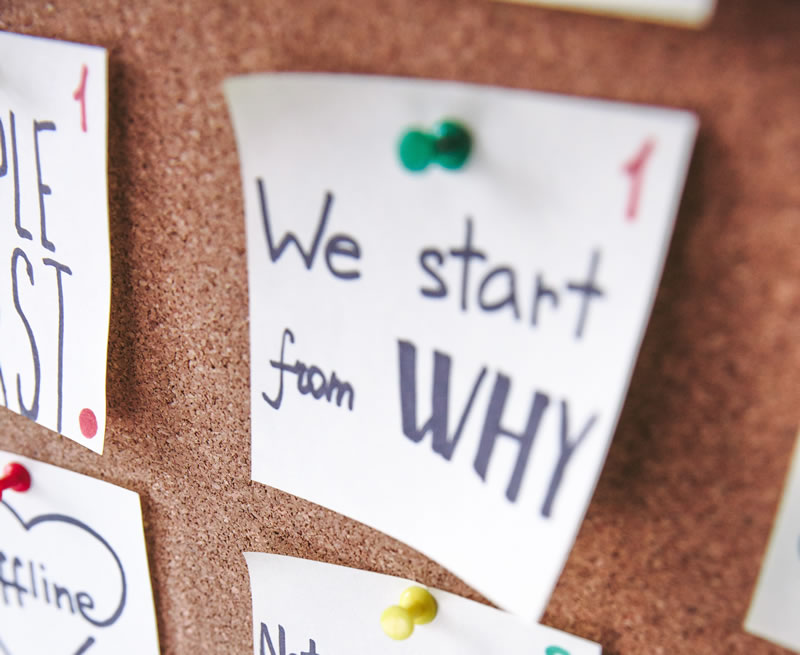Dare to ask why!
Be honest, how many times have you explained a business practice to someone by saying something along the lines of ‘we’ve always done it that way’?
And yet I’m willing to guess you’re also someone who grew up frustrated by your parents answering ‘because I said so,’ any time you dared to ask ‘why?’ in response to any request.
The reality is, there’s no difference between the two annoying comments – they both lack real meaning or any kind of thoughtful explanation or justification.
They both simply act as a constraint – showing no desire to explore options or offer any kind of rationale.
The same is true in all kinds of social constructs in our lives. Take money, for example…we’ve all grown up knowing you exchange notes or coins with a given value for goods or services.
Nobody ever questions why, we just blindly accept it as a given. Yet the construct of money is not necessary for life like food, water and shelter…it’s evolved as a norm.
While some social constructs are a positive force in our lives – respect for others being the most glaringly obvious (and brought into particularly sharp focus at times like this in the world) – others go barely challenged, if at all. Politics, government constructs, organisational seniority – the list goes on.


Very quickly, if left unchallenged, these social constructs can become constraints. Back to money – the force now is simply to make as much as possible and pay the bills, or struggle without enough of it.
Now it goes without saying that you can’t single-handedly change the monetary system that has been in place for thousands of years.
But it is possible to tweak it. Remember those good old days of effortless trips abroad? I’m sure many of you reading this will have enjoyed the novelty of bartering in exotic markets for a bargain souvenir. And at least as many of you will have dipped your toe at least in the burgeoning online auction site phenomenon. Or the modern business must have – a network group where different services can be traded against each other in a form of exchange without money necessarily changing hands.
So when I found myself on what felt like a lone journey to change the rail system after my near-death experience in the Paddington train horror, I was as frustrated as that scolded child when I was confronted week after week, month after long month with a barrage of ‘it’s always been done that way’.
Try as I might, I could not find anyone willing to explain why things were as they were – never mind be prepared to sit down and look at appropriate alternatives that might just be more efficient.
Frustrating does not come close to describing my emotions.
Because as a successful business leader I knew that changes WERE possible and would be beneficial to the wider travelling public if only someone would shake off the past. They certainly couldn’t hide behind the old ‘if it ain’t broke, don’t fix it’ philosophy.
In business – and life in general – people and situations change; what worked once might not work now. New ways of thinking come to the fore, additional resources become available, technology evolves. So apply them, I cry, and don’t be shackled by the decisions of those who went before you.
Take teamwork – use people’s skills appropriately as they join a team and challenge conventional wisdom. It’s absolutely not necessary for organisational seniority to dictate social media, for example. Give the role to the young rookie – in all likelihood they’ll be far more savvy than the boss who’s been in post for 30 years.
If something doesn’t gel with us, we should feel confident enough to question it and ask those telling us how something is done ‘why is it like that?’
When we’re not happy with something and we feel constrained, that’s when we should be seeking to change it, politely and being willing to listen and make credible suggestions about alternative options.
Don’t just sit and grumble – ask ‘why?’ It’s one of the simplest yet most powerful questions you can ever ask and one which can bring untold benefits.


